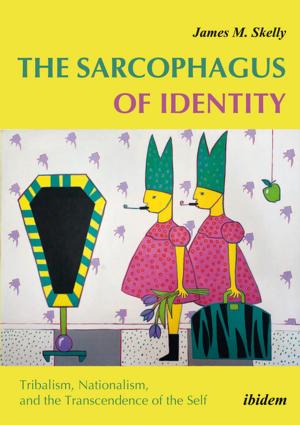Russian Studies of International Relations
From the Soviet Past to the Post-Cold-War Present
Nonfiction, Social & Cultural Studies, Political Science| Author: | Marina M. Lebedeva | ISBN: | 9783838268514 |
| Publisher: | Ibidem Press | Publication: | August 28, 2018 |
| Imprint: | Ibidem Press | Language: | English |
| Author: | Marina M. Lebedeva |
| ISBN: | 9783838268514 |
| Publisher: | Ibidem Press |
| Publication: | August 28, 2018 |
| Imprint: | Ibidem Press |
| Language: | English |
Recently, a renewed international interest in Russia as a world political actor has emerged. Against this background, it is useful to better understand how international relations and foreign affairs are studied in Russia and how future Russian political actors, diplomatic personnel, ministerial bureaucrats, business managers, area experts, and other officials, activists, or researchers are taught for their work on the international arena. What are the theories, approaches, and schools that guide Russian teaching on, and research of, international relations?
The current state of Russian studies of International Relations to a large degree reflects the history and development of IR research during Soviet times. However, over the past 25 years, one could also observe a number of new developments—both substantive and institutional—which are important not only for properly assessing the new state of this academic discipline in Russia, but also for better comprehending Russian foreign policy as well as various international activities of Russia’s regions, businesses, media, etc.
Recently, a renewed international interest in Russia as a world political actor has emerged. Against this background, it is useful to better understand how international relations and foreign affairs are studied in Russia and how future Russian political actors, diplomatic personnel, ministerial bureaucrats, business managers, area experts, and other officials, activists, or researchers are taught for their work on the international arena. What are the theories, approaches, and schools that guide Russian teaching on, and research of, international relations?
The current state of Russian studies of International Relations to a large degree reflects the history and development of IR research during Soviet times. However, over the past 25 years, one could also observe a number of new developments—both substantive and institutional—which are important not only for properly assessing the new state of this academic discipline in Russia, but also for better comprehending Russian foreign policy as well as various international activities of Russia’s regions, businesses, media, etc.











![Cover of the book Thomas Mann und Ivan Olbracht [German-language Edition] by Marina M. Lebedeva](https://www.kuoky.com/images/2015/march/300x300/9783838266633-2V4N_300x.jpg)



